Episodes
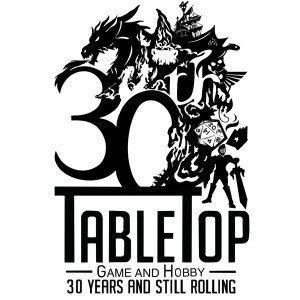
Sunday Jun 29, 2025
Sunday Jun 29, 2025
No, not game, like deer and pheasant, but game like … board games, tabletop games, card games, miniature games. Basically, all the games of the world that happen solo, in pairs, in groups, around tables, at home, at cafes (like the one next door to his shop), and out in parks and fields and anywhere else you can roll some dice or move some tokens or share and swap some cards. Everything but the video games. The video games you go somewhere else for.
Monopoly. Dungeons & Dragons. Apples to Apples. Cards Against Humanity. Vampire: The Masquerade. Warhammer 40K (this guy likes it so much, he's fighting to get a TV show made of it).
These are for the brave souls meeting at parties and in groups and using their imagination, competitive spirit, and full-throated laughter to fuel game experiences that happen in meatspace.
TableTop Game & Hobby in Overland Park, Kan., has been open more than 30 years, and Stewart, years ago, was a young teen harassing the full owner then (now his partner) with stories about his games and characters and weird niche passions. Now, he gets to do the same for a new generation of teens as he’s gone from employee to manager to co-owner.
Want to know more about it? Listen in … and check out these links:
TableTop Game & Hobby is, by far, my favorite RPG stores, thanks to inventory and, mostly, a great big room to play in for years and the best customer service I have ever experienced in a hobby store of any kind. Visit the website online, but if you’re in town, o ever in town, go there!
I’ve interviewed a lot of folks and gaming and gaming accessories, some as volunteer help for the best gaming convention I’ve ever been to, like TableTop also in Kansas City, but also for my own curiosity. Here are the episodes:
My friend Jahmal, about running role-playing game sessions for money. He is a fantastic mixture of practical, philosophical, rule-delving, and story-loving. You might love getting nerdy with his stuff here, too.
Gabi Dyck about hand-made dice.
Sam Chupp about helping to make some of my favorite role-playing games.
Noah Gibbs about helping to run another fantastic local gaming convention.
KJ Davis about helping creatives get their work done.
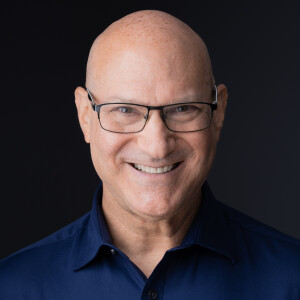
Tuesday May 13, 2025
Tuesday May 13, 2025
I am a big fan of thinking of productivity and task management, but I’ve been through dozens of them and I no longer think that any tool is going to magically spirit away whatever issues I have with self-motivation, focused productivity, or values-based action.
Buuut … I still like to toy with this stuff. Back in the day, David Allen’s book Getting Thing Done changed my life, and I still fall back on GTD’s principles every day. Because I like to experiment, I was willing to switch to Cherry Task from the GTD-based FacileThings in the past couple months, because Ken Fleisher’s interactions about his product and productivity in general on Reddit were so open-minded and thoughtful.
So, I’ve switched to Cherry Task. I use it, on and off, every day or two. I’ve learned to enjoy being able to reach out directly to the designer every few weeks with problems. I appreciate its focus on visual appeal and usefulness of color and symbol. It’s a nicer thing to look at than many other task management or GTD-focused tools out there on the internet.
If you like productivity talk, if you want to hear how the sausage of a task management app gets made, tuck your napkin into your shirt and get to it … let’s try some Cherry Task!
For further reading:
Request to get it on Cherry Task’s beta testing here.
Read more thoughts from Ken on his blog here.
WHAT?! You haven’t read David Allen’s Getting Things Done or tried out his new workbook? Buy them new in bookstores all over, or online, or used or new here.
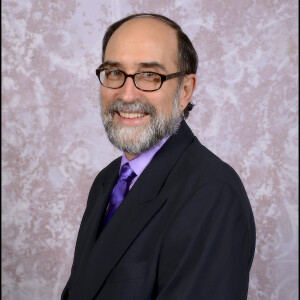
Tuesday Apr 15, 2025
Tuesday Apr 15, 2025
He's a scholar. A therapist. And a rabbi. And all three of those disciplines have touched on his work deeply studying what Judaism has to say about the supernatural and especially the afterlife.
Rabbi Simcha Raphael takes me on a fascinating, personal, and well-researched dive into his decades' long work into a realm that doesn't get as much attention as it does in Christianity: what happens to us after we die.
If you think about God, life and death, and the lesser-known parts of our world, "the window, not a door" we can peek through of the afterlife, this is a must-listen ...
You may also be inspired to read one or more of his books if this conversation grabs your attention. Recommended is a visit to his Da'at Institute and the books:
Musings With the Angels of Death: Poems of Love, Life and Longing, one poem from which is shared in this episode
The quintessential Jewish Views of the Afterlife, now updated and in its third edition.
Other books of thought and poetry on end-of-life issues and care appear on the same website.
P.S. For those into the feminine aspects of spirituality, Jewish of otherwise, an upcoming interview will feature the rabbi's wife, also a rabbi, who is working on a special deck of oracle cards drawing from Jewish ideas of the feminine aspect of God, the Sh'chinah.
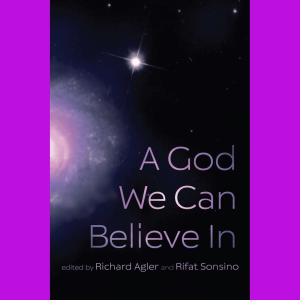
Tuesday Mar 18, 2025
Tuesday Mar 18, 2025
After interviewing Rabbi Rifat Sonsino about a co-edited book he worked on called A God We Can Believe In, the other co-editor reached out and said he had more to say on it. Given that I peppered Rabbi Sonsino mostly about other books he'd worked on that had been influential in my understanding how pluralistic and wide-ranging Jewish views on God were, I said absolutely sure of course yes to a new interview with Rabbi Richard Agler.
In this discussion, we use a little Jewish lingo (most of it explained), but overall, we're wrestling with a perennial problem with monotheism: If God is all-powerful and all-just, why do we see bad things happen to people who have not committed injustices? Why do tragedies happen to good people?
Rabbi Agler's previous book, titled The Tragedy Test, wrestled with that firsthand as he, a decades-long pulpit rabbi, was faced with the unexpected death of his own child. He came out with a God that he could believe in. Then, with A God We Can Believe In, he and Rabbi Sonsino asked thinkers to share the more modern ideas about God that they use in their own lives.
I especially invite you this time to buy either of Rabbi Agler's books, as proceeds go to the Tali Fund, whose good work he talks out in this podcast as well as on his own website here.
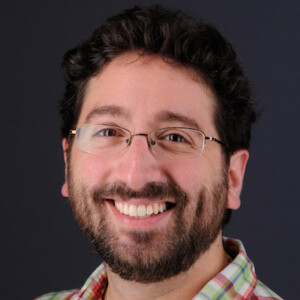
Tuesday Feb 18, 2025
Tuesday Feb 18, 2025
Israel and Zionism: Could I have picked a hotter topic? Well, cool your jets, man.
Sam Brody, PhD, an associate professor of religious studies at University of Kansas, is going to bring a nuanced view of Zionism, theology, politics, and the ever-in-the-news dilemma of the nation-state of Israel by exploring an early thinker on the topic who’s most famous these days in bookstores for his religious work alone: Martin Buber.
If there are terms you don’t get as you listen, stop and look them up. It’s not too deep. Then, bask in Brody’s thoughts on the evolving thinking of Buber, whom he says brings an “anarchist” reading to the Bible to support his ideas about what kind of people the Jews are and what kind of place Israel could be.
His book is Martin Buber’s Theopolitics (what a fantastic word!), published in 2018 by Indiana University Press. Sure, the academic hardback is $90, but the ebook is only $9.99. Don’t be a cheapskate.
When I asked what people completely new to Buber should dig into first—how they should order their first dive into the life and ideas of this empathetic Jewish philosopher famous for his ideas on relational thinking—he recommends some books at the tail end of the podcast (before Brody’s recommendations, I recommend you read a way-too-short and over-simplified snapshot about Buber here, and if you’re into philosophy, head here):
I and Thou, in many old and new versions all over, here in a 100th anniversary reissue
Buber’s Hasidic stories (here or here, all available in earlier cheaper editions, too) about the great Eastern European rabbis—and the first of them, the Ba’al Shem Tov—from the past few centuries who focused on making Judaism more attainable and emotional overly scholarly and intellectual
Thinker Paul Mendes-Flohr, of blessed memory—either reading his book on Buber or watching a talk he gave about the book in synagogue
“Then after that,” Brody says in our interview, “you can read my book.”
After speaking to Brody, I think about the clash of politics and theology in a way, way different way. So this interview was, without exaggerating, eye-opening and mind-shifting for me.
May it be for you, too!
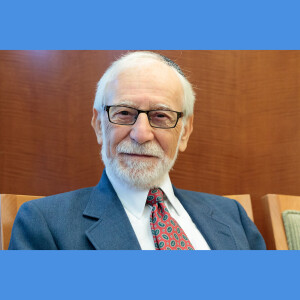
Tuesday Jan 21, 2025
Tuesday Jan 21, 2025
Religions emphasize, in different measure at different times and for different reasons, belief/theology and practice/ritual/tradition.
Judaism, in general, is a religion that focuses more on practice than belief. And it famously has multiple ways to remain “tied in” to the ethnoreligious tribe: To be Jewish is to do Jewish religion, to be Jewish is to be a part of the tribal nation of Israel (as differentiated from the secular state today), and to be Jewish is to be a part of the tribe of Jewish people. Religion. Nation. Tribe.
Traditionally, you are a Jew whether you believe in God or not, but other religions aren’t so forgiving on the point. Can you be a Christian without believing Christ is Lord? Can you be a Muslim if you don’t believe Muhammad was a prophet? But you can deny God and remain in the Jewish people.
All that to say, when I was studying for conversion more than 20 years ago, one of my favorite books was not about the practice of Judaism, but the range of belief systems available to those under the umbrella of Judaism: Finding God by Rabbi Rifat Sonsino. When a student of mine said she was questioning the existence of the Jewish God, I offered her parents a few books to read with her, and one of them was this one. I was happy to see Rabbi Sonsino had updated the book as well as written others.
When I reached out to him, and this was me really reaching for the stands, I was thrilled to hear he’d talk to me about theology and his books. This podcast episode is the result.
If you’re interested in Jewish theology and thinking about God in general, our conversation will be interesting and enlightening. If you, like Rabbi Sonsino, find the rational/scientific/modern world is quite impressive, and your ideas about God are flavored or curtailed by that, Rabbi Sonsino is your jam.
In the ideal world, you’d want to read more after hearing this. Great! Start with Rabbi Sonsino himself. His blog is free and updated at least monthly.
Want to dig into books covering the wide range of Jewish theology in Rabbi Sonsino’s bibliography? Consider:
Finding God: Selected Responses (Behrman House);
or The Many Faces of God (Behrman House), which relies on wonderfully chosen direct excerpts from modern thinkers.
Interested in Rabbi Sonsino’s own exploration of theology and the God-wrestling he describes in this episode? Try:
6 Jewish Spiritual Paths: A Rationalist Looks at Spirituality (Jewish Lights);
And God Spoke These Words: The Ten Commandments and Contemporary Ethics (Behrman House), a perfect one for Christians and Jews who draw from these teachings;
or, last but not least, his most recent book, A God We Can Believe In, co-written with Rabbi Richard Agler. This comes with a lengthy, free book-club-like set of discussion questions to put the book’s content to work for you in rolling the idea of God around in your own head.
Whether you believe in God, believe in something god-like, or think the idea has outlived its usefulness, well, hear what Rabbi Sonsino has to say first ...

Tuesday Dec 17, 2024
Tuesday Dec 17, 2024
I know Ilana from a teaching gig. Ilana's mom asked if I wanted to interview the budding podcaster. I said, of course, sure, absolutely.
You can find everything they're working on around the project of helping kids make a difference in causes they care about at the very well-named Kids4Justice.org. You can also get right to the podcast The Power Pod on Spotify. Episodes are VERY short with snappy music and great guests, and Ilana actually does work to edit a podcast, which I am too much of a sloth to do. They've interviewed musical activists and artist activists, and talked to experts about LGBTQIA+ rights, campaigning, social movements, and protests.
Don't like this episode? It's because I don't put as much work into mine as Ilana does. Go listen to The Power Pod, yo!
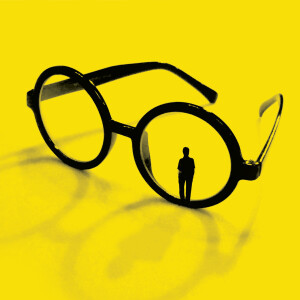
Tuesday Dec 03, 2024
Tuesday Dec 03, 2024
He's a dad. He's a granddad. He was a decades-long sporting goods salesman in his town. And he worries about the negativity in the world today and wanted to take a stab at sharing the philosophy that helps him.
That's Larry Stigsell and his new book, Looking Through Our Eyes of Curi Osity.
I knew Larry through his son; we used to work together in B2B publishing.
I think you get a feel for Larry's energy and goodwill, and the evergreen sensibility at the base of his advice to everybody, in the new book, this interview, and his fun experimentation with videos on YouTube.
If you're ever thought of self-publishing a book, take a ride on Larry's magic carpet for a bit in this episode and try to heat up a bit in the joyful energy for his confidence and friendliness ...
P.S. The cool thumbnail from the book cover is from Larry's graphic-designer son. You can find that dude, Shawn Stigsell, on LinkedIn.
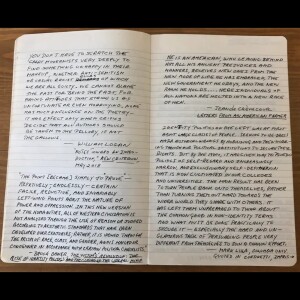
Tuesday Aug 27, 2024
Tuesday Aug 27, 2024
It’s been a few weeks now that I’ve been keeping a commonplace book. A few hours after discovering the concept and chasing some internet rabbit holes, I found Richard Orodenker, a former Temple University faculty member, who uses a commonplace book, has studied historical examples of them, and used them as projects in some of “Intellectual Heritage” classes with college students.
I immediately contacted him and asked if he’d be interviewed on the books, their use, and his practice and study with him.
He agreed. And, thus, another episode of What People Do was borne ... tada!
Orodenker employs a commonplace book with quotations and things from books he’s read on the right-hand side of a journal spread, and his own journaling thoughts and reflections on the left-hand side. Commonplace books are sometimes nothing but scrawled notes, and other times gorgeous, intricate, and artistically wondrous works from artists and scientists.
I have found the commonplace book helpful as a way to note, reflect on, and re-read things that jumped out at me in all the things I try (new psychology exercises, new spiritual exercises, journaling) and all the things I read (nonfiction, prayers, poems, websites, articles). I keep my commonplace book and journal separate for now, but maybe someday I’ll swing the Orodenker way and throw them together!
If you love smart professors, old things made new again, and journaling, reading and self-reflection, this episode is a must-listen.
For further exploration:
Orodenker’s The Common Place Book Project appears here.
If you’re into baseball and the Philaldephia Phillies (they’re my arbitrarily chosen MLB team), enjoy this. Orodenker has written about sports writing for some more scholarly works as well, including this and this.
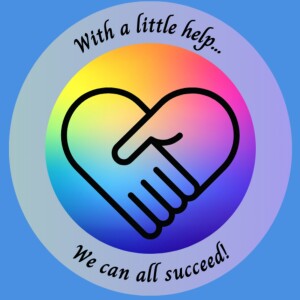
Tuesday Jun 18, 2024
Tuesday Jun 18, 2024
KJ Davis is a self-described "working neurodivergent matriach, military vet spouse, small business owner, and descriptive fantasy sci-fi author." All the aspects were interesting to me (we didn't talk the "military vet spouse" part, sorry).
The idea of a small business that serves to help creatives take their burning passions to the people is a neat one. What if you're shy, nervous, inexperienced, afraid of failure, or have other social or psychological issues that make it hard to take those first steps in self-promotion to get your name out there?
That's what KJ does ...
Note: This episode is a special bonus episode featuring a sponsor at our local game convention, Kantcon, which is dope and you should check it out every year. The 2024 one is July 5-7!
For further enjoyment:
Visit KJ's website here. There, you can find absolutely everything about all of her clients (art! snacks! books!), see some creativity-friendly merch to buy, and check out her fantasy novel series.
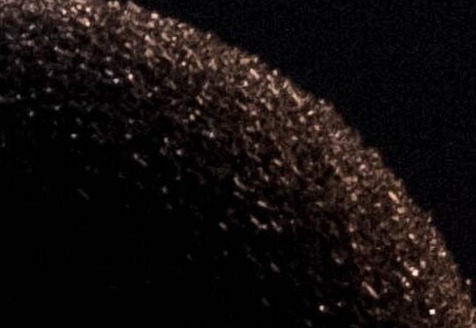
What People Do: Interviews of Discovery
When COVID happened, I started talking to friends, family and acquaintances about something they did. The topics, personalities, and conversational directions go many different ways, but the important thing remains the same: We are all worth the time it takes to sit down and talk a while to each other. What would you learn if you slowed down, asked more questions, and delved into something interesting to ... someone else?



